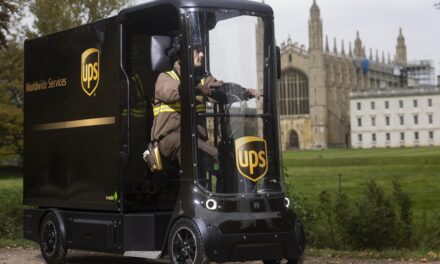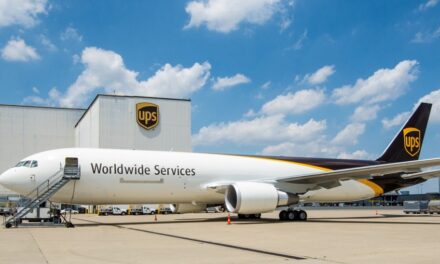
UPS and TNT Express planning $1bn, four-year integration
UPS is predicting it will need to invest one billion dollars in integrating the global network of TNT Express into its own operations. The process following today’s announced $6.7bn acquisition deal, is set to take four years to complete, longer than it might have done, executives said, because of their desire to minimise disruption to services during a “customer-centric integration”.
The combined business should see “a more global UPS”, executives said, with annual revenues growing from around $53bn a year to $60bn a year and more revenues generated for UPS outside the United States in areas where it has been “underserved”.
Currently, 74% of UPS revenues come from its US operations, but this should reduce to a 64% proportion combined with TNT.
UPS should see its European and Middle Eastern operations contributing 22% of revenues (currently 14%), and the rest of the world 14% (currently 12%).
Dan Brutto, the UPS International president said today: “95% of consumers are outside the United States, so obviously our goal is to become more international. We’d like to get 50% of our revenue in five years outside the United States, we think that’s obviously where the market’s going.”
Brutto said there were services such as TNT’s important road network in Europe and the Middle East where customers had been asking UPS for services it could not provide.
The UPS International president added that small and medium-sized businesses were an important part of his company’s expansion outside the United States.
He said: “We’re going to invest a billion dollars to combine these networks so we can make small and medium-sized customers be competitive anywhere they operate on the globe.”
Synergies
Executives said at a press conference in Amsterdam this morning that they were confident their proposals would be accepted by antitrust authorities, but that it was “too early to tell” exact details of how the shape of the combined business would look.
The company is expecting to achieve $520m to $720m in synergy cost improvements through the integration of the two networks.
A joint integration committee is being set up to review the entire organisation, with representation from both UPS and TNT management involved, to bring the two networks together.
Executives said the key areas of overlap would be in in-country operations in certain markets, as well as in administrative fields as the company moves to a unified system.
Scott Davis, the UPS CEO, said it was “way too early to talk about redundancies”, but did tell reporters this morning: “The synergies will come, it will be difficult, but ultimately it will be of great benefit to all involved.”
“We always at UPS would look to attrition first before we have redundancies, but it will be a slow process, it’s too early to tell when and if we’ll have redundancies at this point in time.”
Integration
Davis said in many cases the economics of joining the two companies were “obvious”, such as in how the two air networks would be brought together.
“The ability to align these is good for cost reductions, it’s also good for our environmental footprint,” he said.
TNT Express had already been moving to reduce the number of owned aircraft it has in its fleet and use more partnerships to move air freight. Executives now see this approach as helping use up some of the existing excess capacity on UPS aircraft.
Regarding markets where TNT operations have been proving difficult, Kuehn said operations would be reviewed. However, he insisted UPS was “excited about Brazil”, saying UPS would keep the business and hope to grow it in future.
The UPS CEO said: “I think Brazil is certainly a fast-growing part of the world, TNT’s made some big investments in Brazil over the years and I think it’s an area that is important and will be a big addition to UPS.”
Marie-Christine Lombard, who is staying on as TNT Express chief executive until integration is more complete, said the TNT Express network would continue looking for partnerships in China and Asia.
Europe
In Europe, where UPS is “confident” of growth particularly in the small package market, the company’s executives stressed the importance of TNT Express operations in the Netherlands, the “control centre” of the company’s road network, and also insisted to reporters that the hub in Liege would continue to play a role.
UPS International president Dan Brutto said in the immediate future his company intended to keep the TNT Express hub in Liege, Belgium, operational despite the relative proximity of the UPS hub in Cologne, Germany.
“It’s an important component in the TNT Express network and we think without getting into too much detail, from a high level it looks like it fits very well in the network,” he said this morning.
Scott Davis, the UPS CEO added that long-term UPS thought there was a use for Liege, saying: “We see value in Liege, the people and the assets, operationally it’s a great location. It may change its function, it may modify as we do integration, but we do expect to utilise Liege, we think it’s a great operation and good location.”













